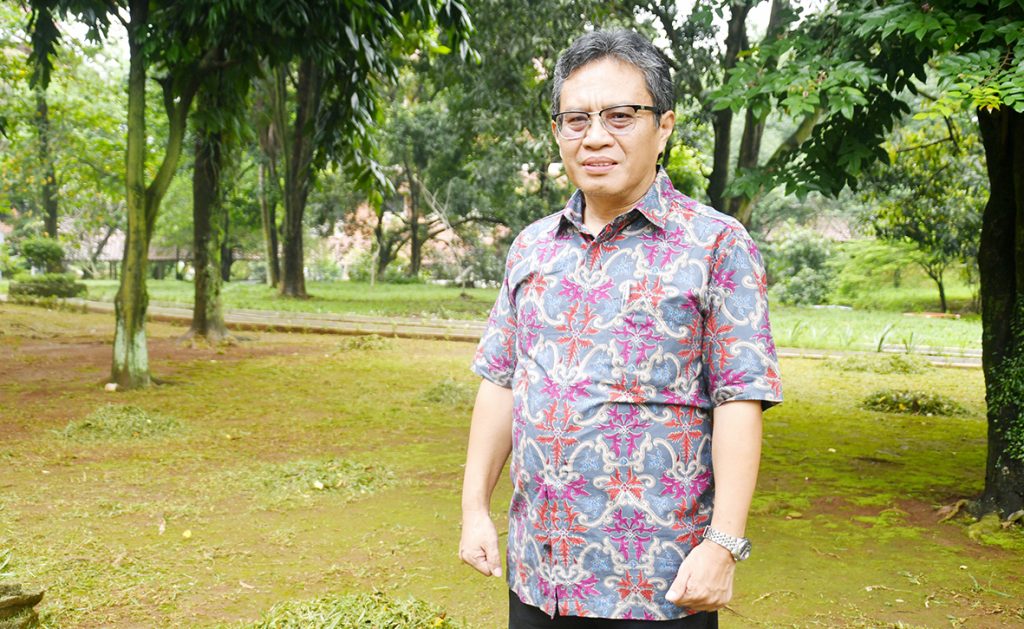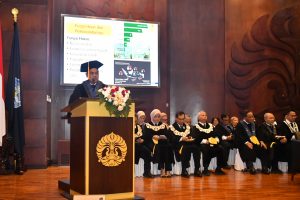Head of the Department of Geography, Faculty of Mathematics and Natural Sciences (FMIPA) University of Indonesia (UI) Dr. Supriatna, M.T., said that currently Indonesia is facing a major challenge in handling climate change issues, including global warming which includes increasing global temperatures, rising sea levels, the greenhouse effect and other hydrometeorological disasters. Gases produced mainly from motor vehicles and industry, such as carbon dioxide (CO2) and carbon monoxide (CO) which are released into the earth's atmosphere and re-emitted from the solar radiation process in the form of heat absorbed by the earth's surface.
The issues of climate change and global warming have become a special concern for all levels of society throughout the world. As a form of support in protecting the environment, April 22 is designated as Earth Day in more than 175 countries.
The impact of fossil fuel use (motor vehicles, industry) can cause pollution, greenhouse gas effects, acid rain, and global warming. In addition to damaging the environment, said Supriatna, the results of burning fossil fuels also have a negative impact on health. Meanwhile, changes in land cover/land use from vegetated land use to built-up land use also contribute to worsening the condition of the earth.
Supriatna added that there are several factors that cause the greenhouse effect, namely the use of fossil fuels, such as coal, oil, and natural gas for energy and transportation purposes. One of them, the continuous use of coal can produce greenhouse gas emissions, especially carbon dioxide (CO2). "Around 80% of electricity in Indonesia is still produced with coal, this means that excessive use of electricity will also cause the ozone layer to thin out quickly due to excessive coal production."
Then, excessive use of water will also have an impact on the environment. Excessive consumption of surface water and/or groundwater will damage and pollute the soil layer. Not only does it have an impact on the environment, it will also have an impact on human health because the production of clean water (PAM) from surface water (rivers/lakes) that has been polluted will be consumed by humans. Polluted groundwater (industry/intrusion) if consumed is not good for the human body.
Furthermore, Dr. Supriatna mentioned steps to save electricity and water both at home and at work. There needs to be discipline from individuals, especially parents, in supervising their children's electricity usage, and taking steps to turn off electrical equipment that is not in use.
Water saving must also be applied in daily activities, such as when washing dishes and washing clothes. This discipline also needs to be applied in the office environment, even in a large area/institution it is also necessary to implement a policy of saving electricity in the room and the use of water taps.
Currently, Indonesia has tried to utilize renewable energy, including by utilizing sunlight captured by solar panels to generate electrical energy. Then, wind power as air movement with the potential to drive turbines that are used to generate kinetic energy and electrical energy. Then, biomass including biodiesel, biotaenol, and biogas. However, renewable energy does not provide constant properties and is only found in certain areas so that its use remains limited, such as energy sources from geothermal.
For that, Dr. Supriatna hopes that the government can establish routine policies and programs every year or every month to encourage energy and water conservation activities, such as blackouts at certain hours. In addition, it is necessary to increase awareness and discipline in protecting the environment by managing waste, electricity, and water efficiently in order to save resources. Educational efforts can also be influenced by encouragement from individuals or groups such as lecturers, teachers, and students through community service programs, field work, and Real Work Lectures (KKN).
News source: https://sci.ui.ac.id/




